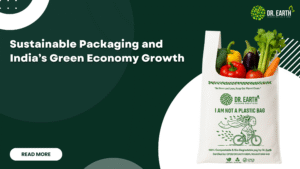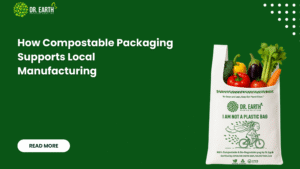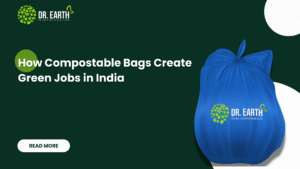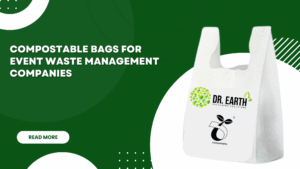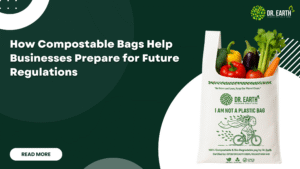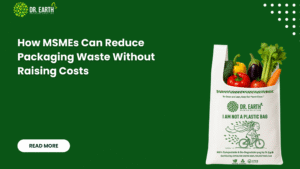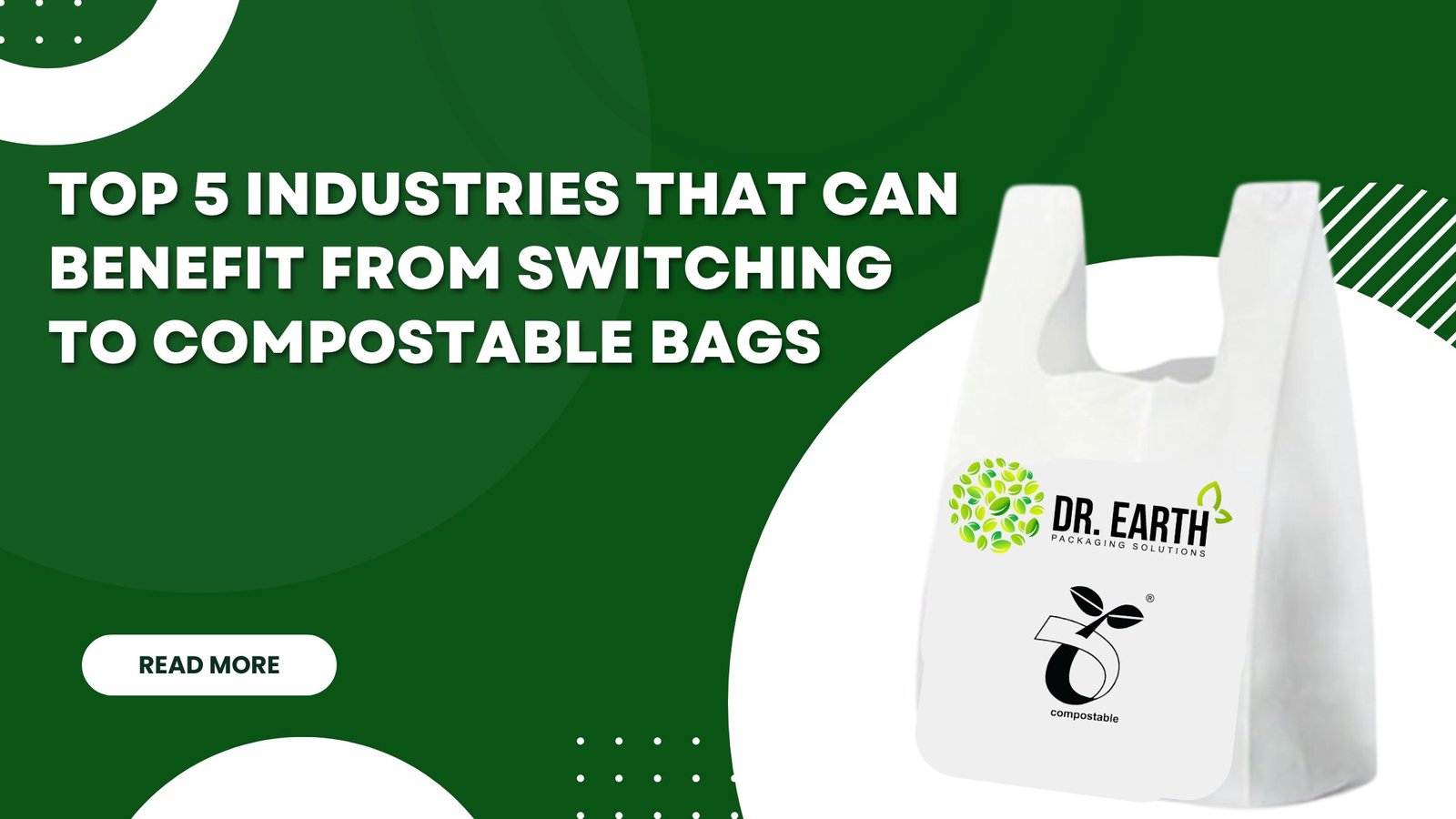
As the environmental crisis from plastic waste escalates companies invest in sustainable replacement solutions to cut their impact on Earth. Cornstarch-based compostable bags represent an alternative to traditional plastic bags because they break down naturally within composting environments while plastic luggage persists in environments for eons.
Switching to compostable bags can have a huge influence on various industries, not only due to the elimination of plastic waste but because of a better brand reputation, full compliance with the regulations, and alignment with consumer demand for eco-friendly products. In this blog, we discuss the top five industries that can greatly benefit from adopting compostable bags.
1. Food Industry: Packaging with Purpose
As one of the largest waste-generating sectors food industry continues to produce substantial plastic waste. Single-use plastic bags serve as grocery bags while they have become preferable for packaging takeout. Becoming part of the food commerce change towards eco-friendly packaging options proves to be a major step toward protecting the planet. Here’s how:
Environmental Impact: Compostable bags function as replacements for plastic bags and containers to provide food packaging solutions. Through biodegradation processes these products prevent plastic waste from accumulating inside landfills or floating in ocean water bodies. It is one kind of food packaging that keeps the environment clean without causing excessive contribution of plastics.
Customer Preference is becoming greenish, and thus many customers want to get these products packed using eco-friendly or sustainable means. With the use of compostable bags, food businesses can attract such environmentally conscious customers, thereby improving customer loyalty and increasing sales.
Compliance with Rules: Most of the regions on earth are clamping down more on plastic wastes. Compostable bags have been certified under organizations such as the Biodegradable Products Institute (BPI) and several other eco-certifications. That way, with compostable bags, food companies will be way ahead of legislative requirements in compliance with current or future legislation aimed at waste minimization.
Example: Fast food chains, grocery stores, and restaurants can convert to compostable bags when delivering food through takeaway orders, food deliveries, or packing of groceries. Such will better the company image and set an end to an unhealthy planet.
2. Retail Industry: Leading the Charge in Sustainability
This retail industry is considered one of the biggest users of plastic bags across the globe. From clothing stores to supermarkets, plastic bags still dominate the package products.As sustainability trends gain momentum many retailers choose compostable bags. Here’s why
Sustainability as a Selling Point: Retailers that prioritize sustainability will stand out in the crowd. Compostable bags allow retailers to make environmental responsibility part of their marketing appeal. Moving toward compostable options can satisfy consumers’ needs for greener choices and position them as market leaders.
Cost-Effective for High-Volume Operations: Each year retail establishments particularly large grocery stores use millions of bags. The micro-payment for compostable bags will generate a return because authorities require their use and the expense to manage plastic waste disposal decreases selling this material.
Appealing to Conscious Consumers: Customers today demonstrate increased environmental consciousness. Through the adoption of compostable bags retailers can connect with environmentally conscious customers to improve both brand commitment and customer happiness.
Example:Large grocery chain stores and department store giants should start using compostable packaging options for their products to meet the needs of both carbon-conscious customers while reducing their emissions.
3. Hospitality and Foodservice Industry: Sustainable Practices in Dining
As one of the largest waste generators in the market the hospitality and foodservice sector encompasses restaurants hotels and catering establishments. Two principal causes of environmental contamination include food waste as well as plastic bags and packaging materials. Compostable bags, therefore, form a sustainable solution for this sector, and here’s why they are a game-changer:
Reducing Plastic Waste in Takeaway and Delivery: Food delivery services have also been increasing and with them has been the rise of plastic use for food and packaging by restaurants and food delivery companies. It can use compostable bags on take-out, food delivery orders, and the packaging of condiments and sauces.
Aligned with Green Certifications: Green Certifications and eco-labels are in huge demand, particularly in the foodservice sector. Compostable packaging helps in obtaining many of the certificates that restaurants could not earlier to attain a certificate for a better, green look on their plates while also fetching customers who love such options.
Waste Management Efficiency: Besides changing to use compostable bags, restaurants and hotels have many more systems adapting to compost. Most of them can compost simultaneously with food as compostable bags are also amenable to composing with food wastes, making its waste management better and environmental.
4. Healthcare and Pharmaceutical Industry: Ensuring Clean and Green Practices
Medical supplies together with packaging systems rely heavily on plastic bags which remain popular worldwide. The substitution of health institutions from plastic bags to compostable bags will established a more sustainable system.
Sustainability in Medical Packaging: Pharmacies and distributors of medical supply use compostable bags in the packaging of over-the-counter drugs and small medical supplies. This has been an eco-friendly complement to the traditional use of plastics in the packaging of that industry, which ensures hygiene and safety with less plastic waste.
Promoting Green Healthcare Initiatives: Now that more and more healthcare providers have been focusing on “green” initiatives, that includes reducing their environmental impact with the operations that they are engaged in, it would be easy to replace disposable plastic bags by renewable ones for sustainability purposes.
5. Event and Exhibition Industry: Eco-Friendly Packaging for Large-Scale Gatherings
All aspects of the event industry create significant plastic waste from conferences to trade shows and festivals to other event correspondences. Event management traditionally employs plastic materials across both promotional activities and meal packaging procedures. Events generate reduced environmental impacts when compostable bags serve as replacement for traditional plastic materials.
Reduce Event Waste: Event swag bags together with festival food packaging demonstrate the utility of compostable bags. Events can achieve sustainability during big meetings by switching from plastic to compostable packaging materials.
Creating a Sustainable Event Brand: Building a sustainable event brand Events that have sustainable practices create an excellent positive image for the event brand, hence attracting the conscience of greenish attendees. Making use of compostable bags when managing the event’s waste has improved the entire experience while putting out the statement of a greener event.
Example:The event organizers can provide compostable bags to collect promotional materials for the attendees, reduce waste at food vendors by using compostable takeaway bags, and have a composting system for biodegradable waste.
Conclusion: A Path Toward a Greener Future
Change to compostable bags is one of the simplest yet drastic changes any industry can make, and food industry and retail, for instance, help bring down plastic waste and provide better brand reputation, thus keeping businesses in alignment with the growing demand from consumers for this type of products.
Compostable bags gradually become part of the road toward a greener and more responsible future as companies embrace sustainability. Industries will achieve not only meeting their environmental goals but also building a cleaner and healthier planet for generations to come by making such a transition.
FAQs
Q- 1. What’s the difference between compostable and biodegradable bags?
Ans- Compostable bags decompose fast in composting environments without leaving harmful residues. However, biodegradable takes longer to decompose and may leave harmful traces.
Q- 2. Can compostable bags be used for food packaging?
Ans- Yes, but it is safe and well suitable for packing foods, especially takeaway and grocery item.
Q- 3. How long do compostable bags take to decompose?
Ans- They usually take 3-6 months to decompose under industrial composting conditions.
Q- 4. Are compostable bags more expensive than plastic bags?
Ans- Yes, but offsetting investment in reduced waste disposal cost and good brand image.
Q-5. Can compostable bags be recycled?
Ans- No, they should be composted rather than recycled as they may pollute the recycling stream.
Share:
Related Posts



